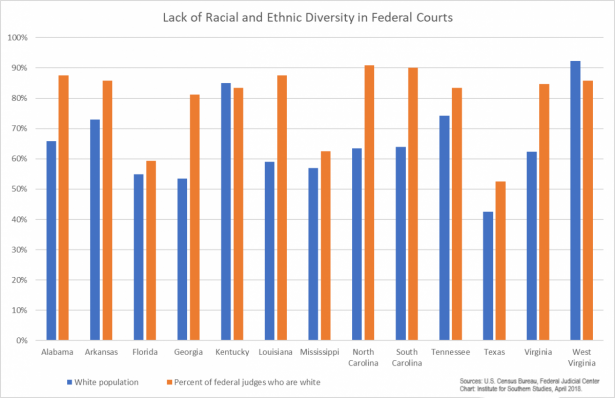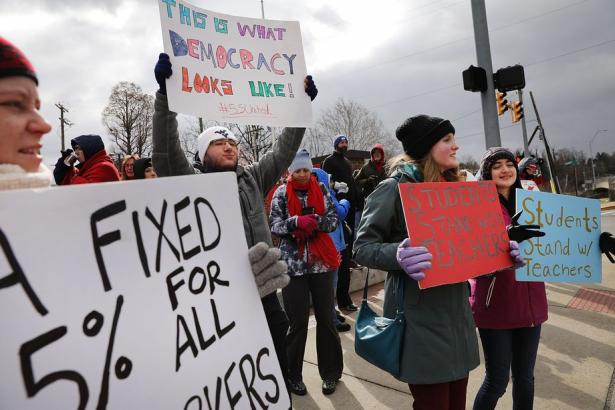Trump Is Erasing Racial Diversity from the South's Federal Courts
Facing South

"The South is the most rapidly changing region in the nation and deserves courts that reflect the diversity of its present and future — not its past."









Spread the word